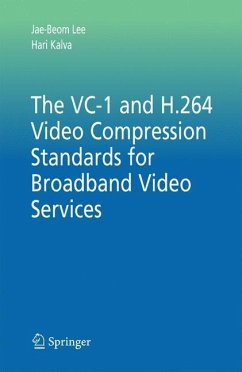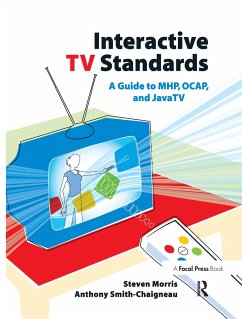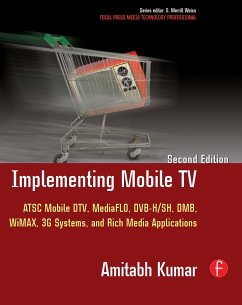
Digital Interactive TV and Metadata
Future Broadcast Multimedia
Versandkostenfrei!
Versandfertig in 1-2 Wochen
115,99 €
inkl. MwSt.
Weitere Ausgaben:

PAYBACK Punkte
58 °P sammeln!
The book shows how digital-interactive television (digiTV) will affect the relation between the broadcaster and the consumer. Standardization processes, technological paradigms, and application development issues will be discussed. The emerging applications, innovations, and future concepts are described in detail. The triangle: content - end-user - technology will be conceptualized to create a vision and to overview provision of services that will be major innovative elments in the world of digital television. From the technical side, eXtensible Markup Language (XML)-based metadata standards are a major element in realizing new innovative concepts in the world of digital, interactive television. This book clearly shows by the introduction of applications and use-scenarios, which conceptual requirements and metadata models are applicable, which metadata subsets are applicable due to resource limitations, which metadata aspects are needed for nonlinear content viewing, etc. The book gives a broad and detailed both visionary and technical overview useful for graduates, engineers, and scientists; and last but not least decision-makers in the broadcasting industry.
Recent years have brought many changes to the world of mass media. The In ternet and mobile communications technology have provided consumers with interactive digital services. Television is catching up with this trend through the digitalization process. Digital television is a hybrid platform combining elements from classical analog television and the Internet, providing modern multimedia services on a familiar platform. In short, digital TV is a gateway to the world of interactive digital media. Digital TV brings consumers into the television service arena and offers them new degrees of freedom. However, as the service and multimedia content types diversify and the services and their content increase, television is facing many of the same challenges of complexity and information overflow faced by other digital media. Metadata can handle the diverse services and content of digital TV effi. ciently and in a consumer-friendly way. Metadata means that the data are accompanied by other data which describe them. As data about data, meta data can provide an insight into syntactically and semantically complex data by distilling their essence to a set of simple descriptors. Metadata also helps to structure and manage information in diverse settings. The use of metadata in broadcast multimedia should not be restricted to being merely a tool for coping with the challenges of a complex networked multimedia environment. Instead, metadata ofTers new opportunities for the development of innovative services.














